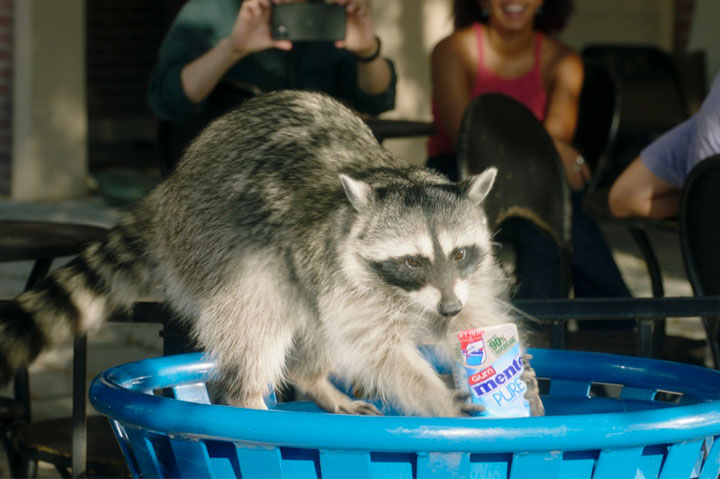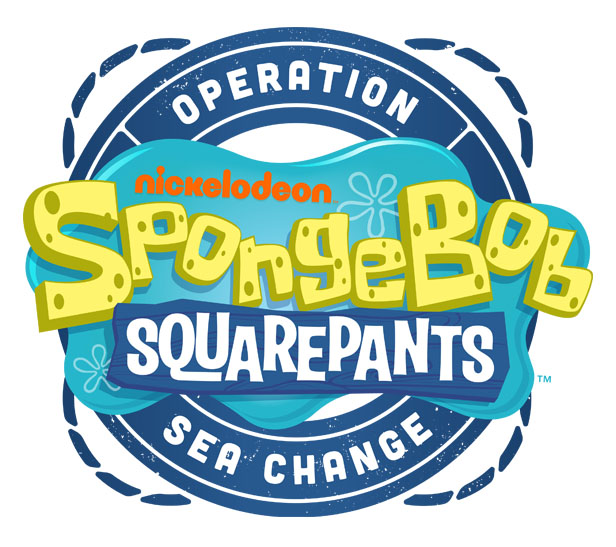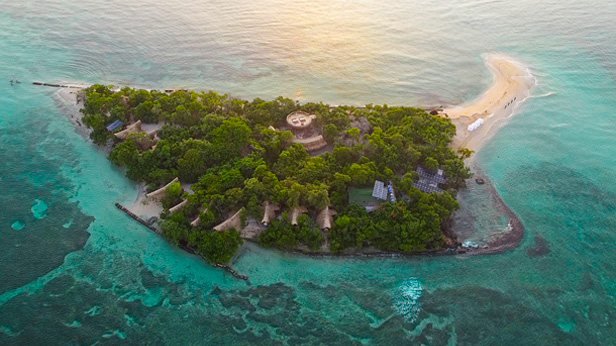October 28, 2022
From Trained Raccoons to Private Islands: 3 Offbeat Sustainability Initiatives
Brands are going to extremes to show off their eco-friendly efforts.
Offering sustainably made products and touting your environmentally friendly practices has become de rigueur for companies these days. So, to stand out from the crowd, many big brands have taken to creating elaborate and outlandish earth-focused promotions – whether it’s a trained force of small mammals ready to recycle or a beer company’s plastic-free island resort. They’re certainly headline-grabbing stunts, but are they really more than flashy greenwashing? Let’s take a look.
Mentos Trains Raccoons to Pick Up Litter

A member of Mentos’ Raccoon Recycling Force sorts recyclables from the trash.
This is pretty much exactly what it sounds like: The candy company trained a so-called “Raccoon Recycling Force” – RRF for short – to dig though trash cans and pick out recyclable items that were erroneously tossed in the garbage. The sustainability stunt is meant to draw attention to Mentos’ recyclable paperboard gum bottle.
“At Mentos, we know we must do our part to help lessen our environmental impact and are constantly looking for new ways to improve our product packaging and achieve our plastics reduction, recycling and reuse goals,” said Craig Cuchra, vice president of marketing at Perfetti Van Melle, maker of Mentos. “Working with the Raccoon Recycling Force is a fun way to highlight how we can all do a little bit better, while learning from such an adorable and talented pack of creatures.”
Though 78% of Americans are more likely to purchase a product that’s clearly labeled as environmentally friendly, only about 32% of Americans actually recycle, according to stats cited by Mentos. By comparison, the raccoons were able to recycle 75% of the time.
Mentos hired animal trainers who spent more than 40 hours training four raccoons to learn the difference between a recycling bin and a trash bin. The sustainability-minded critters were then sent on a mission in Simi Valle, CA, to root out paperboard Mentos bottles from the trash and move them into the recycling. The raccoons’ trainers weren’t surprised by the animals’ efficiency at recycling. “Raccoons are actually incredibly smart and highly trainable, plus they’re already in our trash,” said Crystal Chen, an animal trainer at Working Wildlife.
As part of the recycling push, Mentos set up a hotline so people can give suggestions on which neighborhood’s refuse the raccoons should tackle next. Mentos also incorporated a branded-merch element into the quirky marketing stunt: Fans who took and shared the official RRF pledge on social media were eligible to win Raccoon Recycling Force T-shirts, hats, pins and other items.
Verdict: This is definitely the silliest of the three initiatives on the list and perhaps the most attention-grabbing. Still, raising awareness about the low rate of recycling in the U.S. is a worthy goal, so two paws up for Mentos’ efforts.
SpongeBob Takes on Ocean Conservation

Who lives in a pineapple under the sea – and wants to remove and divert 5 million pounds of ocean plastic over the next four years? SpongeBob SquarePants! The Nickelodeon cartoon, along with Paramount Consumer Products, is partnering with several nonprofits to fund cleanup projects as part of its new Operation Sea Change sustainability initiative.
Operation Sea Change will also work with current SpongeBob consumer products partners to drive more sustainable practices and reduce single-use plastic in products.
“Since its debut almost 25 years ago, ‘SpongeBob SquarePants’ has become globally beloved for its contagious optimism and irreverent humor, but at its core, the series has always had an intrinsic connection to the sea,” said Veronica Hart, executive vice president of global franchise planning at Paramount Consumer Products. She added that the initiative is also a way to honor the legacy of Stephen Hillenburg, the marine biologist who created SpongeBob, who “was so deeply committed to preserving our oceans and marine life.”
Operation Sea Change will be providing funding to nonprofits including: the Waterfront Partnership of Baltimore, which is dedicated to cleaning and beautifying the city’s waterways; the Coral Restoration Foundation, founded in Key Largo, FL, and dedicated to restoring this critical ocean ecosystem; Plastic Oceans International, a nonprofit devoted to ending plastic pollution worldwide; Surfers Against Sewage, a grassroots environmental charity that organizes a Million Mile Clean in the UK annually; and WORK, an organization that supports waste collectors who recycle plastic.
SpongeBob is teaming up with AKUA, a New England-based company that makes meat-alternative foods, to launch in 2023 a branded kelp patty that features reduced plastic packaging. Conscious Step, a Brooklyn company that designs and sells sustainably made socks, sweatshirts and candles, will launch a line of SpongeBob-branded apparel in the fall, with a portion of the proceeds donated to conservation nonprofit Oceana. Next year, Australia’s Munro Footwear Shoes will roll out a line of SpongeBob shoes made from reclaimed leather and featuring recycled, plastic-free packaging. Apparel brand Waterlust will launch a line of products featuring recycled fabrics made from post-consumer bottles.
Verdict: SpongeBob is an instantly recognizable icon, and even though the ocean he lives in is animated, it’s nice to see the creators embrace ocean conservation on such a broad scale, incorporating partnerships with nonprofits and an array of sustainably made branded merchandise.
Corona Opens Plastic-Free Private Island

Corona Island is a tropical destination for eco-tourism off the coast of Colombia.
Corona claimed last year to be the first global beverage brand with a net zero plastic footprint – recovering more plastic from the environment than it releases. It’s taking that commitment to sustainability a step further with the opening of Corona Island, a tropical destination for eco-tourism off the coast of Colombia. The island, which opens to the public next summer, is completely free of single-use plastic.
Corona partnered with Oceanic Global, receiving the nonprofit’s three-star, plastic-free Blue Seal for adopting sustainable operating best practices at scale. Sustainability is at the center of every decision and touchpoint of Corona Island, according to the brand. For example, the tiny island can accommodate about 840 people, but will only accept 20 visitors at a time, not including island staff of 25 people.
“On Corona Island, we are celebrating the majesty and beauty of the outdoors by getting guests engaged in protecting paradise,” said Felipe Ambra, global vice president for Corona. “Everyone on the team, from our chefs to our architects, contributed to creating a truly single-use plastic-free paradise. We look forward to welcoming visitors, rekindling their relationship with nature and hopefully creating more advocates to protect our natural world.”
Verdict: Corona Island sounds like the name of a raunchy reality show, so the fact that it is instead a sustainable tourism destination is a bit jarring. Still, it makes a certain kind of sense for a beer brand that evokes images of pristine beaches to make the leap into eco-tourism and reducing single-use plastic. I’ll clink my glass bottle to that!

Promo for the Planet is your destination for the latest news, biggest trends and best ideas to help build a more sustainable and socially-responsible industry.
